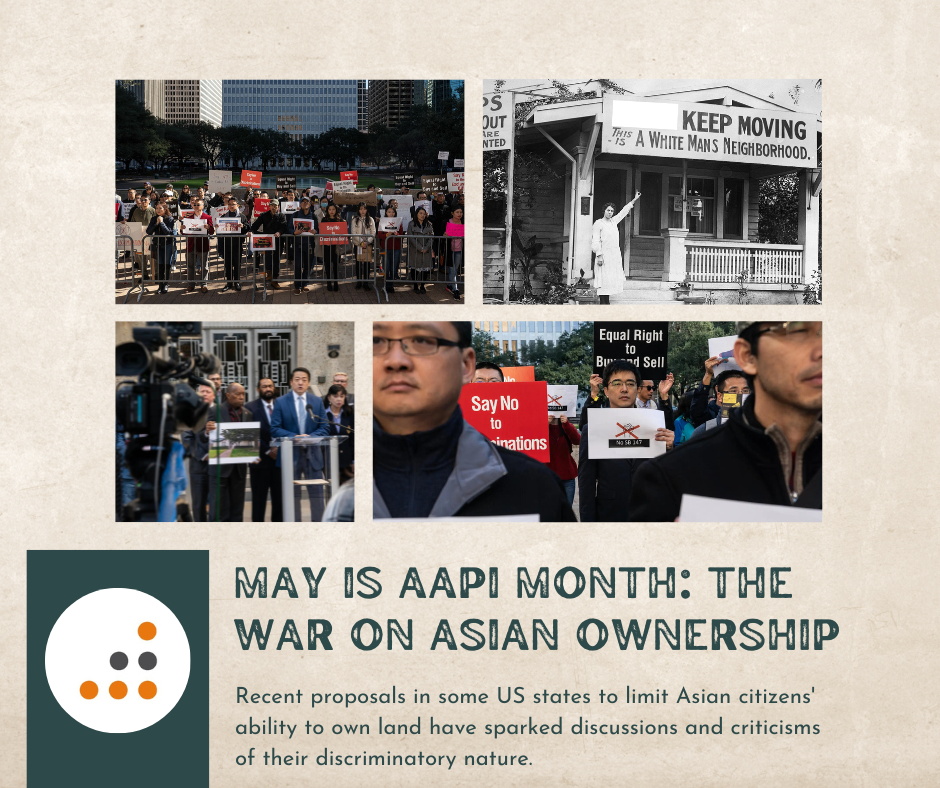
Recent proposals in some US states to limit Asian citizens' ability to own land have sparked discussions and criticisms of their discriminatory nature. The Texas proposal, in particular, seeks to prohibit citizens of countries such as China, Iran, North Korea, and Russia from owning any land. The legislation would also seemingly extend to legal immigrants living in the United States.
In Virginia, Gov. Glenn Youngkin is expected to sign legislation to ban citizens of countries the State Department has designated as “foreign adversaries” from owning agricultural land. Companies with deep ties to those countries would also be affected. Those countries currently include China, Russia, North Korea and Iran. There are similar proposals in Montana, Wyoming and North Dakota. Foreign owners control a fraction of US farmland, according to the Congressional Research Service.
In Texas, a much broader proposal names those countries and bans citizens of them from owning any land whatsoever. The ban would presumably extend to legal immigrants living in the US. That bill is still working its way through the legislature but has the support of Gov. Greg Abbott.
The proposed bills have raised concerns among civil rights organizations and the Asian American community due to its similarity to Alien Land Laws passed between the 1880s and 1920s. These laws targeted Asian immigrants by prohibiting them from owning land in certain states. The California Alien Land Law was eventually overturned by the Supreme Court in 1952 for violating the 14th Amendment.
Critics argue that these new proposals are not only discriminatory but also counterproductive. They point out that the real estate market is global and that foreign investment contributes significantly to the US economy. A ban on land ownership could discourage foreign investment and harm the economy in the long run.
Moreover, the proposals may affect innocent parties who have no ties to foreign adversaries. For instance, a Chinese-American or an immigrant from Iran who has lived in the United States for decades would potentially be affected by the ban despite having no connections to the Chinese or Iranian government. Such a ban would lead to unnecessary hardships for innocent individuals who have made America their home.
Additionally, some experts argue that the proposals could be unconstitutional. The proposed bans on land ownership could violate the 14th Amendment of the US Constitution, which guarantees equal protection under the law. The proposals may also violate international law, which recognizes the right of individuals to acquire property without discrimination.
In conclusion, the recent proposals to limit Asian citizens' ability to own land are reminiscent of discriminatory laws of the past. Critics argue that these proposals are counterproductive, unconstitutional, and harmful to the US economy. Instead of limiting ownership based on ethnicity or nationality, policymakers and lawmakers should focus on addressing the root causes of any potential threats to national security or economic stability.
Find out how you can celebrate Asian American Pacific Islander (AAPI) Heritage Month. Asian Real Estate Association of America (AREAA) is an organization dedicated to promoting homeownership opportunities for Asian Americans and Pacific Islanders. Visit https://areaa.org/northernnewjersey for more information.